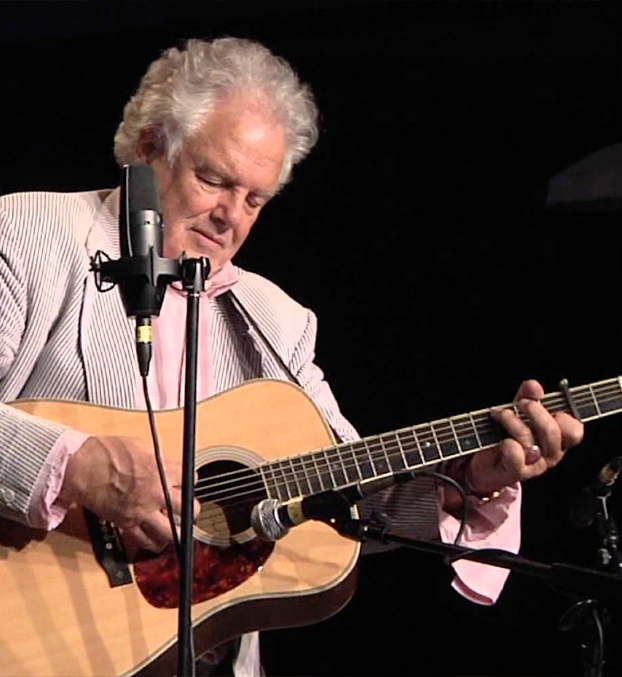Peter Rowan
notes by Rick Shubb
I recently had the pleasure of playing on a show with Peter Rowan. We’d crossed paths a few times over the years, and have several mutual friends. But it had been quite some time, and I was pleased to see that he used a Shubb Capo, and was anxious to talk to me about getting a couple more to fill out his “toolbox.”
It also served to remind me once again what a great musical talent Peter is.
Back in the days when northerners were not accepted by the mainstream southern bluegrass community, he was a groundbreaker. Bill Keith was the first northern member of Bill Monroe’s Blue Grass Boys, but he was primarily an instrumentalist. The southerners allowed as how “a Yankee may learn to pick, but they couldn’t sing real bluegrass.” Enter Peter Rowan, singing his young ass off …bluegrass style.
His stint with Monroe was one of the golden eras of Monroe’s band. To my ear he ranks alongside Lester Flatt and Jimmy Martin as classic duet partners for Monroe. His rhythm guitar was perfect; not just steady but artful. And he knew the whole Monroe songbook, allowing Monroe to fill more requests, and to craft his shows with variety rather than featuring the same two or three duets night after night. His Walls of Time stands as one of the greatest bluegrass duets ever.
Along with Bill Keith, Peter Rowan was to bluegrass, to some degree, what Jackie Robinson was to baseball: using undeniable talent to gain acceptance for a whole segment of society, enriching his field by their inclusion.
The first time I met Peter was when Bill and his Blue Grass Boys were touring the West Coast. They had shows scheduled on consecutive nights in Berkeley and Palo Alto. A misunderstood phone call led us to believe the band would not arrive in time for the Berkeley show, so the promoters, a circle of friends I was part of, cancelled the show. Well, they did arrive almost on time but the show was already cancelled. Some of them were hungry, and I recommended a local restaurant. Every one else did OK, but Monroe got food poisoning. I sometimes refer to it as “the night I poisoned Bill Monroe.”
The following night in Palo Alto, Bill was, in his own words, “in no shape to play bluegrass music.” He left the stage several times during the first set, and was unable to return for the second set. Peter Rowan stepped up to front the show, singing many of Monroe’s classic solos. His performance that night really knocked me out, and while some people might have been a little disappointed at not getting a full dose of the Man himself, all were pleased and knew they’d seen a great show.
A few years later Peter would again bridge the culture gap, this time in the opposite direction. As a member of Old and In The Way, he helped to bring bluegrass music to a whole new audience. Their album was one of the best selling bluegrass records of all time, owing in no small part to the popularity of their banjo player, Jerry Garcia. Most of those who bought it would never have dreamed of buying a bluegrass album before. That stuff was played by people who looked like their father, it had nothing to do with them. Then Old and In The Way broke the gate down.
I’m sure that many people bought the album having no idea what they were getting. It was not about Garcia, although he did fine for his part. It was an all-star album, and an ideal showcase for Peter Rowan, both as singer and songwriter (Midnight Moonlight, Land of the Navajo, and his signature Panama Red.) Some rockers were probably just puzzled, but many more embraced this “new” music they would never have discovered otherwise. And to that very large group, Peter Rowan – Yankee hippie upstart and all that – is the definitive bluegrass singer of his generation.


